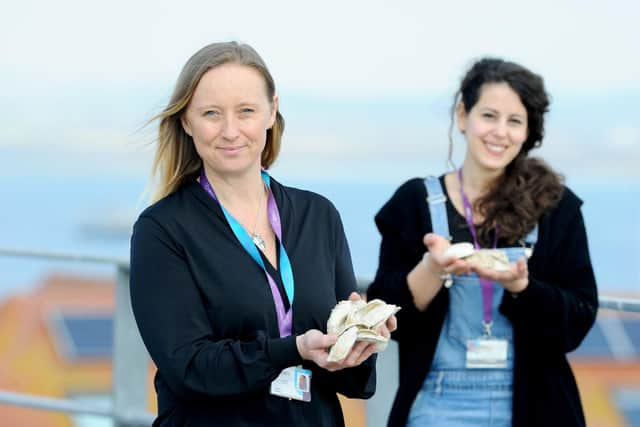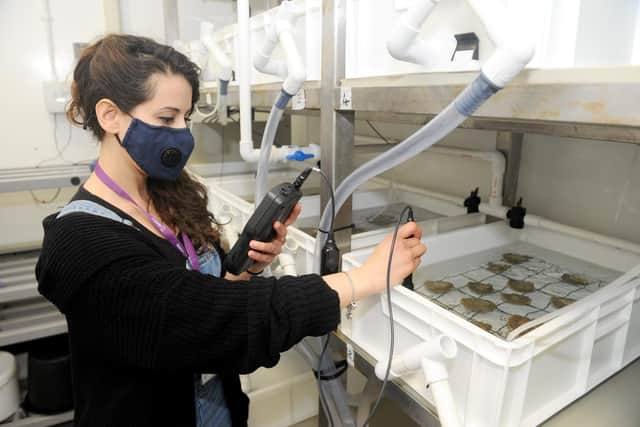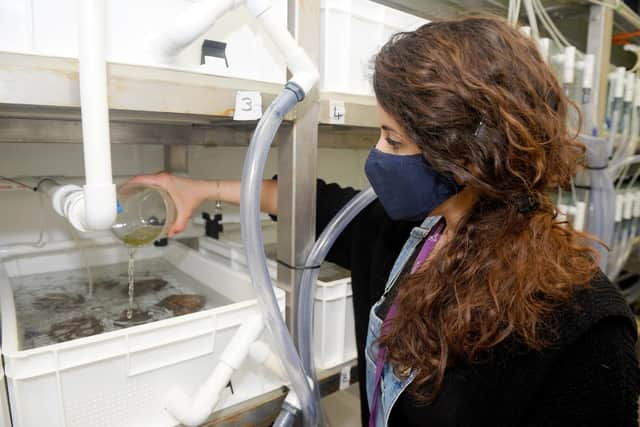Portsmouth sees first English project to save oysters from extinction
and live on Freeview channel 276
That is the hope of a new project run by the University of Portsmouth – the first of its kind in England – which will see the region’s depleted oyster population restored to its former glory.
At the Institute of Marine Sciences in Langstone Harbour, oysters have been taken out of the harbour and are being conditioned for reproduction.
Advertisement
Hide AdAdvertisement
Hide AdThe university’s scientists hope that this hatchery will spark an environmental rejuvenation of the Solent, with a million oysters set to be produced in the first year alone.


Dr Joanne Preston, who is leading the project, said: ‘We realised that sometimes nature needs a helping hand.
‘We wanted to restore the population – there are only a few oysters left and so we need to preserve the genetic diversity.’
Oysters, which are almost extinct in the Solent, have a tremendous positive impact on our environment, added Dr Preston.


Advertisement
Hide AdAdvertisement
Hide AdWhile giving The News a tour of the hatchery facility, she explained that oysters keep the surrounding water clean and encourage marine life to an area by providing food and a habitat.
The oysters are fed in tanks and water temperature is increased by one degree Celsius each day to fast-track their spring growth.
Dr Preston said: ‘These oysters will hopefully encourage an increase in fish stocks around the Solent.


‘I think this is a really important project – so many people don’t realise just how crucial oysters are.
Advertisement
Hide AdAdvertisement
Hide Ad‘We depend on them to help provide food and support the wellbeing of our waters.
‘It’s vital that we make this a success.’
With support from the Blue Marine Foundation, around £150,000 has been pumped into this project.


The oysters are being bred to be disease-resistant, and will be placed in zero-fishing areas across the Solent – specifically Langstone Harbour, the Hamble and Newtown Nature Reserve.
It is hoped that the oysters can be put into the Solent in just a few months’ time.
Advertisement
Hide AdAdvertisement
Hide Ad‘We will be monitoring them for the next five or six years,’ said Dr Preston.
‘It’s important to keep an eye on how they reproduce, how much larvae is being produced and how the ecosystem is benefitting from their presence.’
The News recently launched a new campaign called Going for Green, encouraging people to do what they can for the environment.
A message from the Editor, Mark Waldron
You can subscribe here for unlimited access to our online coverage, including Pompey, with 70 per cent fewer adverts for less than 20p a day.
Comment Guidelines
National World encourages reader discussion on our stories. User feedback, insights and back-and-forth exchanges add a rich layer of context to reporting. Please review our Community Guidelines before commenting.